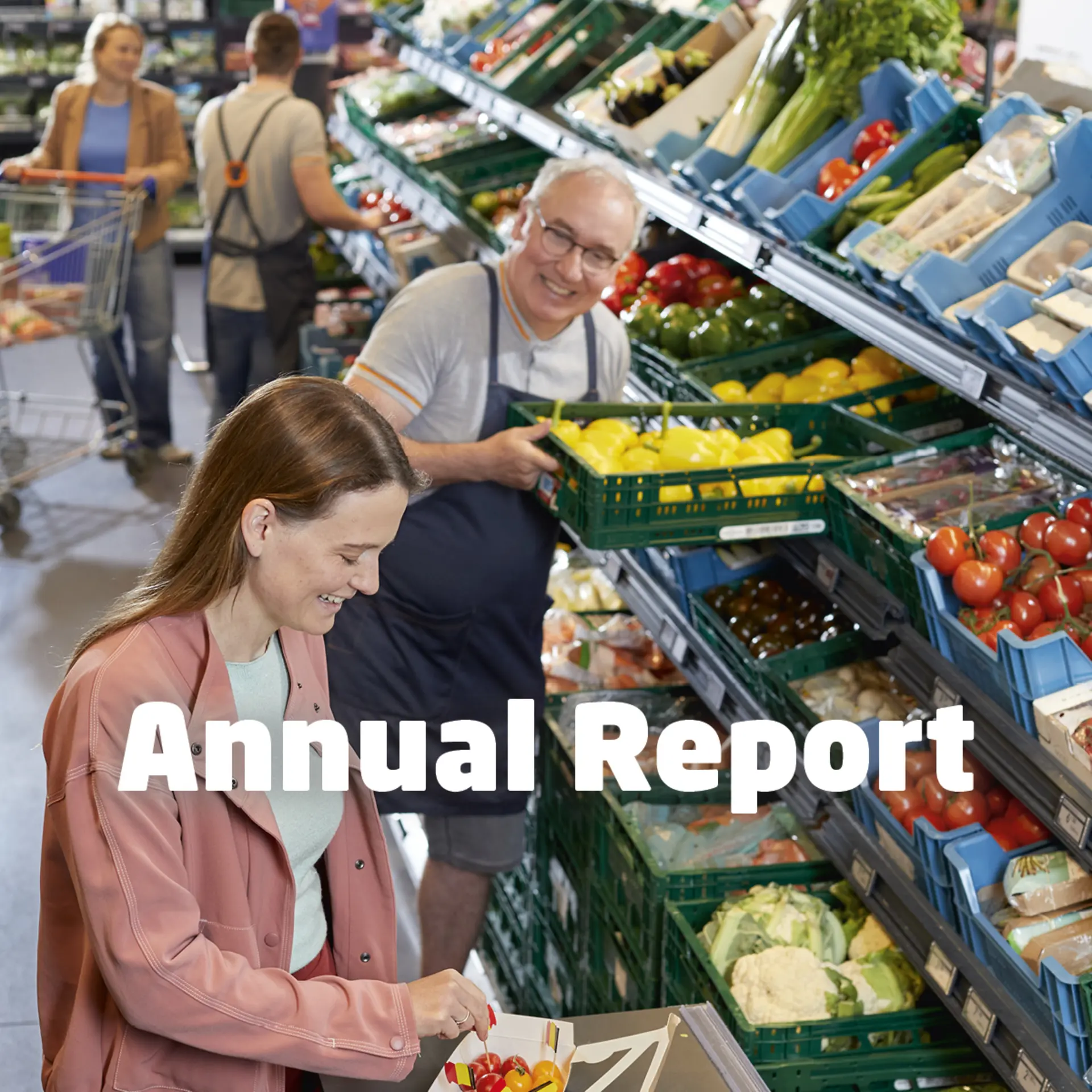Colruyt Group launches national roll-out of reusable bags on 9 October
In the coming weeks, Colruyt Group will make every effort to make the use of reusable bags for fruit and vegetables a habit from 2020. From 9 October 2019, the group will start its national roll-out of the bags, building on the lessons learned from the pilot phase in 51 stores. The pilot stores, including all Bio-Planet stores, replaced their single-use plastic bags in the fruit and vegetable section with an alternative that can be reused up to a hundred times. To make the transition as smooth as possible, all Xtra customers will receive a free set of five bags when they buy fruit and vegetables in the stores of Colruyt Lowest Prices, Spar Colruyt Group, OKay and OKay Compact stores. This special offer runs until 1 January 2020 and is supported by an information campaign that focuses on the benefits that using reusable bags can bring. There will also be tips on how to turn the use of reusable bags into a new habit as soon as possible, so that everyone can ultimately make a contribution to a better environment. Colruyt Group will stop using single-use plastic bags in all 579 food stores on 2 January 2020.
Friday, October 4, 2019
Colruyt Group aims to support its customers during this important change
Fine-tuning after the pilot phase
In the pilot phase, all plastic bags were removed from the fruit and vegetable sections of all Bio-Planet stores on 19 June. This also happened in some twenty Colruyt, OKay, OKay Compact and Spar Colruyt Group stores near Lier, Kortrijk, Bergen and Dinant. All the Xtra customers of these stores were then given a free set of five reusable bags when they bought fruit or vegetables.
Christophe Dehandschutter, sales director at Colruyt and manager of the project: “The reusable bags were very well received by our customers. This clearly illustrates their motivation and that of our employees to make an active contribution to the ecological transition. It is also confirmed by the fact that we did not see any negative effect on the sale of fruit and vegetables in our pilot stores. In fact, the reusable bags were also popular in stores that were not in the pilot phase. In the end, we received many positive reactions in-store, on social media and by customer service. We used this feedback to fine-tune our communication, working methods and timing for the national roll-out. We really want to do everything we can to make things as easy as possible for our customers."
5 free reusable bags
The national roll-out starts on 9 October. From then on, all Xtra customers who buy fruit or vegetables from Colruyt, Spar and OKay will be offered a free set of five reusable bags. This offer is valid until 1 January 2020, even for customers who took up the offer previously in a pilot store. "Today, there are some 2.7 million reusable bags in circulation, far more than in our most optimistic scenarios," explains Christophe Dehandschutter. Plastic bags will be permanently removed from the fruit and vegetable sections of all Colruyt Group food stores on 2 January 2020. This will result in an annual reduction of 150 million plastic bags. "Although we are fully prepared for replacing plastic bags, we have decided to make the final transition after the busy end-of- year period", Christophe Dehandschutter concludes.
Repeat, again, and again, and again
During the transition period, every effort will be made to help customers to get in the habit as soon as possible. The various shop formulas will communicate the advantages of reuse in-store and in their leaflets. Tips & tricks will be posted on Facebook, in a positive and optimistic fashion, encouraging and reminding customers to bring their reusable bags with them. Of course, customers can also contact staff members or customer services if they have any questions.
Scrapping the plastic bags is not an isolated initiative, because Colruyt Group is still continuing its efforts to make all its packaging more sustainable. "Special working groups are working on reducing packaging and specifically the use of plastic. For example, by replacing plastic with reusable, recyclable or renewable materials,” confirms Christophe Dehandschutter. "We’ve already achieved some excellent results in this area, although there is still a lot of work to be done. But we are still ploughing ahead.”
Download your photos here.
